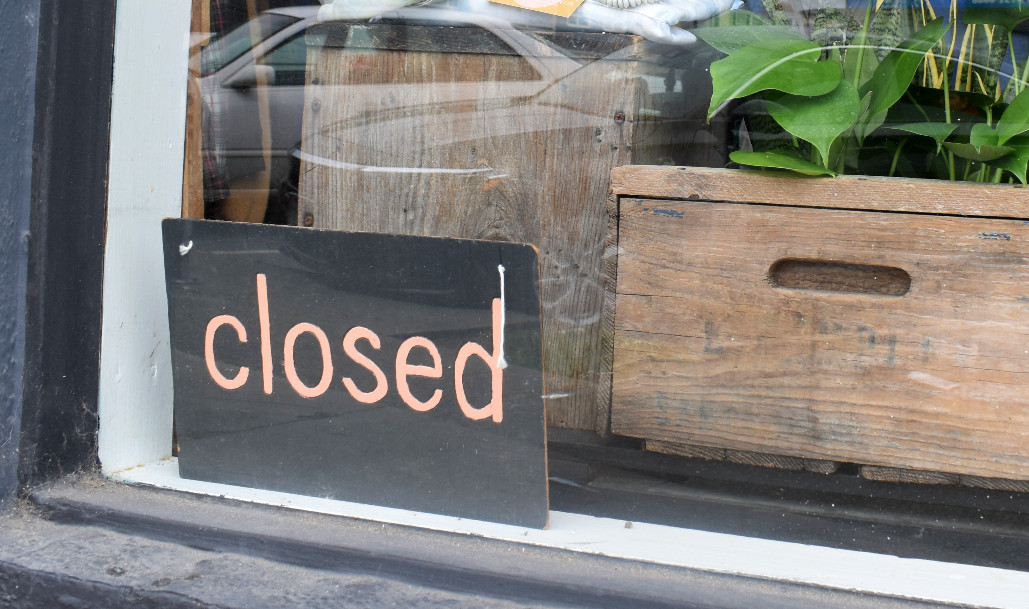Declining ICU capacity has prompted a mandatory stay-home order for all Bay Area counties, including San Mateo County, starting Thursday at 11:59 p.m., state officials announced today.
Under California’s COVID-19 policies, a region that sees its ICU bed capacity fall below 15 percent is required to implement a stay-home order. As of today, the region’s capacity fell to 12.9 percent, according to the state’s COVID-19 data dashboard.
The order prohibits private gatherings of any size, except outdoor church services and political demonstrations, and forces restaurants to offer only take-out and delivery services. Salons, barbershops and personal care service businesses must close, although retail can remain open at 20 percent capacity and stand-alone grocery stores at 35 percent capacity. Nonessential travel and the use of hotels or short-term rentals for leisure is banned.
Playgrounds can remain open under the stay-home order and outdoor activities such as exercise are permitted. Schools that have already reopened for in-person classes can remain open under county education guidelines.
The stay-home rules will remain in effect for at least three weeks.
Five other Bay Area counties have already self-implemented the state’s stay-home order due to the expectation that their region was destined to dip below the 15 percent ICU capacity threshold. San Mateo County chose not to impose the stay-home order early, but the County says it will do so now fully.
“So many lives have been affected by COVID-19 across the world and here at home. It’s heartbreaking,” Warren Slocum, president of the Board of Supervisors, said. “The holidays are a time when we show our love for our friends and our families. I encourage everyone this holiday season to show your love by giving the gift of good health. Please stay home and stay safe.”
As of Tuesday, the County reported to the state a total of 18,907 COVID-19 cases since the pandemic began and 183 deaths. Single-day highs in cases have occurred repeatedly this month and the County’s test-positivity 14-day average has risen to 8 percent from 2.1 percent in early November.
Community leaders are urging residents to shop local given the impact the stay-home order will have on businesses during the holiday season. “Firms with fewer than 100 employees account for 97.4 percent of employers in San Mateo County, and firms with fewer than five employees account for half of all businesses,” County officials said.
“What a year 2020 has been. Now, more than ever our small businesses need us,” said Rosanne Foust, president and CEO of the San Mateo County Economic Development Association (SAMCEDA). “Please join me in grabbing take-out from a locally owned restaurant in your community, visiting a local retailer online and ordering something to brighten someone’s day and taking the time to reach out and say thank you to our small businesses who are doing their best to manage the uncertainty we are all facing.”
***
What can stay open – with modifications?
Outdoor recreational facilities: Allow outdoor operation only for the purpose of facilitating physically distanced personal health and wellness through outdoor exercise, without any food, drink or alcohol sales. Additionally, overnight stays at campgrounds will not be permitted.
Retail: Allow indoor operation at 20 percent capacity, and 35 percent of capacity for standalone grocery stores, with entrance metering and no eating or drinking in the stores. Additionally, special hours should be instituted for seniors and others with chronic conditions or compromised immune systems.
Shopping centers: Allow indoor access at 20 percent capacity with entrance metering and no eating or drinking in the stores. Additionally, special hours should be instituted for seniors and others with chronic conditions or compromised immune systems.
Hotels and lodging: Allow for COVID-19 mitigation and containment measures, treatment measures, provide accommodation for essential workers, or providing housing solutions, including measures to protect homeless populations.
Restaurants: Allow only for take-out or delivery.
Offices: Allow remote only except for critical infrastructure sectors where remote working is not possible.
Places of worship and political expression: Allow outdoor activities only.
Entertainment production: Industries, studios, and other related establishments such as establishments that provide content for professional broadcast can operate without live audiences.
What must close?
Under the Regional Stay Home Order all operations in the following sectors must be closed (except to the extent that their operations fall within critical infrastructure):
Hair salons and barbershops
Personal care services
Museums, zoos, and aquariums
Movie theaters (except drive-in)
Wineries, bars, breweries, and distilleries (with exception for production, manufacturing, distribution, and retail sale for off-site consumption)
Family entertainment centers
Cardrooms and satellite wagering
Live audience sports
Amusement parks






